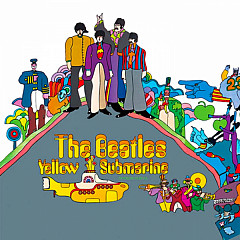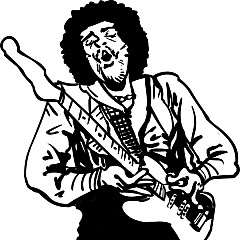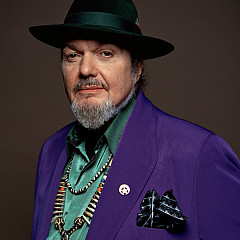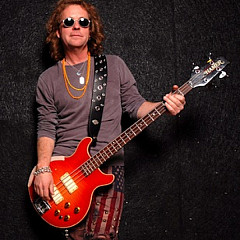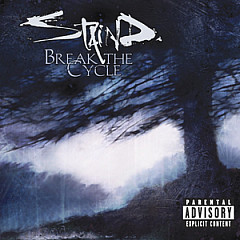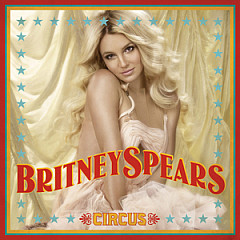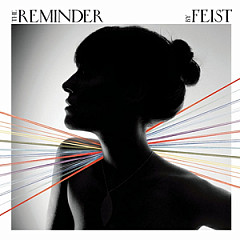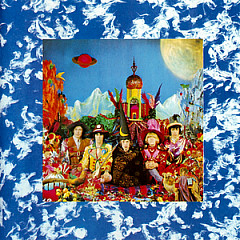
Those 20-feet-from-stardom stories are some of our favorites. Janie Barnett has been just off the spotlight for a few decades now, singing backup for the likes of Rickie Lee Jones and Celine Dion, while also lending her voice to the many commercials, TV and film projects that provide a paycheck. Her journey involves an unusual degree of higher education, winding through Andover, Harvard, Berklee and Tisch.
Her own music leans toward bluegrass. You can hear her 2017 album You See This River on Spotify. Via email, she shared her story.
Janie Barnett: The session singer's work life requires tremendous discipline and humility. By the same token, you have to come in with great confidence that you can deliver. You are there exclusively to serve the direction of the producer or artist in the hot seat. It's your job to understand exactly what they want and need from you, and you have been hired, presumably, because you are the right fit for the job they need. As the years go by, and you're hired by people over and over, the pressure recedes in terms of your anticipation of "delivering."
The work is quick, intense, and requires precise execution of your skills. I've always loved this work because I hold that concept of hard-earned "skill" in such high regard; I admire it in other people – in any field - and I'm proud of the skill set I've developed. Occasionally things go haywire, and you have to think on your feet in terms of how to trouble shoot: sing something a different way, make a suggestion without appearing arrogant, smooth out someone else's frustrations. It's a lot of different skills all rolled into one, and then you want to make sure it all looks easy. Being on time helps, too!
Songfacts: When Pink sang on SNL this week (October 14, 2017), she drew a lot of attention to her backup singers, even dropping a line so they could come full. Would like to get your thoughts on this and hear about how the backup singers typically interact with the primary performer.
Janie: Every project is different, as every artist has his/her own relationship to the musicians hired. When I sang on the Celine Dion records, she was never there. This is a certain kind of job and it happens often, live and in the studio. The work then is all about the relationship with the arranger in the studio. But when the lead artist is present, I've never sung in support of a singer who didn't have the utmost respect for the backup singers. When I sang on SNL with Rickie Lee Jones – a real dream come true for me – she was grateful, respectful, professional. We all have a job to do, but the camaraderie in those circumstances, any musician in any role will tell you, is like nothing else.
When I worked with Linda Ronstadt she talked about what happens when you're on the job with other musicians. The same kind of hormonal event that occurs for soldiers among their brothers and sisters in the field occurs. The bond is strong.
Songfacts: Boarding schools and Ivy League aren't typically associated with bluegrass. Please tell us about where you went to school, what you studied, and how that road took a crooked turn.
Janie: I left home in my junior year of high school to attend Phillips Andover, a boarding school north of Boston. I had – for lack of a better word – intellectual passions in addition to music, and at that time wasn't sure whether I would go into music exclusively. Ironically, it was at Andover that I met some amazing musicians who taught me and inspired me. Thomas Chapin, the world class jazz saxophonist and composer, was a classmate, dear friend and mentor during our time at Andover. I started there the first year Andover went coed, and it was an exciting time to be there.
After Andover I took two years to find out what it was like to be a professional musician. I finally started Harvard the summer of that second year, made it through the summer and fall semester, all the while asking myself how I could accommodate the two parts of myself. I kept asking how I could juggle the two, looking for help in that regard. I couldn't find the help I needed to resolve what I thought, then, was a conflict. So I took a leave of absence. Spent two semesters at Berklee College of Music. Took a leave of absence again. Moved to New York for music. Went to Tisch at NYU for two years, took a leave of absence again when the session business started to heat up.
Are you seeing the pattern here? I could NOT find a way to join the two parts of my brain!
Ultimately, when my daughter was around 6 or 7, I managed to finish a degree through the Gallatin School at NYU, a program that was originally designed for people with other careers. At Gallatin my advisor, also a working parent, described me as "the classic artist/scholar." Honestly I had never heard of the artist/scholar as a term. I don't pretend to be a scholar, but I think if I had had the right mentor helping me understand what was possible, this jumping in and out of school might not have happened. It's the search for understanding and identifying which tribe you feel at home with. And it turns out you can feel at home in several different tribes, and to recognize that and accept that will ultimately help you create a enriched and happy life. Parent. Artist. Partner. Writer. Citizen. So to be an Americana artist who has a passion for Steinbeck. Not that big a stretch, after all.
Songfacts: How did you go about writing and recording the album?
Janie: The first song, which is the title song "You See This River," came a number of years before the rest of the songs. I wrote it when my daughter was around 10 years old. I was in a critical moment in my identity. How could I keep hold of myself and ownership of my own journey, juggle all the elements of the life I say I want?
The river imagery is always powerful. And I felt I had found a melding of lyric storytelling and the fingerpicking pattern and harmonic structure that really reflected that story. It took hours to just fine-tune that pattern for the right notes to hit in the right part of the pattern. I held that song for quite a while, knowing I had found something special. The rest of the songs started to come after I had "discovered" a lot of new Americana music. I heard acoustic instruments from my youth – mandolin, fiddle, layered acoustic guitars, dense bluegrass style harmonies - and I realized I missed those sounds, craved those sounds, and that the stories I wanted to tell should evolve through those sounds. I knew what my themes were. Longing, discovery of self, the messy nature of our ambiguous relationships to each other and to society. I spent hundreds of hours over several years in my home studio refining my parts.
It's important for me to share the fact that all of the players on this record are not only top players in their field, but dear friends to me, and they all worked, whether in studio together, or at home on their own home studios, for countless hours, committing themselves to finding the truest best part to support the songs. I impressed upon them that there was no time table, and I rarely had to impose more than one set of directions. The same with the engineer, Michael Golub, who mixed this record and poured his heart, soul and brilliant ears into this project. He worked on his own for I don't know how many hours, getting things just right. We've worked together for many decades, so this was a no-brainer for Michael to be the one to mix this project. It was a family affair. In fact my ex-husband and still my friend, Mick Hanson, played guitar on the song I wrote for our daughter Adrienne. The whole recording process has felt like a family affair, where it just so happens the family members are all outstanding musicians in their field!
Songfacts: Please tell us about recording the hymn "How Can I Keep From Singing" and how Paula Cole ended up singing on it with you.
Janie: Paula and I met at Berklee College of Music, where we both mentor emerging artists. We developed an instant friendship, upon sharing our stories of juggling lives as working artists and mothers. Ironically, when Paula's Grammy-winning record was enjoying its success, I was wrestling with a very young child and all of the wonderful music out there by strong female singer-songwriters was an odd source of frustration to me. I came out of that period and came under that magical spell which is Paula Cole, and as our friendship has developed, she has discovered my work as well, and we are each others' champions.
"How Can I Keep From Singing" has a Berklee connection as well. I wasn't familiar with the traditional hymn. A student brought it to my attention, and I decided to re-treat it for the record. I had absolutely no idea it had so many versions to its credit. Didn't do my research!! I asked Paula, and our colleague Jeff Ramsey to sing with me at one of Berklee's state-of-the-art recording studios one late night after teaching. Jeff and Paula were in school together; Jeff is another extremely talented artist and mentor to the students at Berklee. That night was just magic, and I hope we'll get a chance to record again in the future. It was a case where the three voices are so distinct and yet together in that setting they created a beautiful blend. Two other talented singers are on that track as well, Kenny White and Angela Reed.
Songfacts: What part of your job do you find most satisfying?
Janie: I would be devastated if I could not sing, play my instruments, on stage and off. It's part of my DNA. But the writing is at the core of my gratification. It all starts with the writing, both lyrics and music. The magic in that seed of an idea is like no other. The tinkering, the repetition, the exploration, flipping from one side of the brain to the other to "discover" the song... incredibly satisfying. I feel incredibly grateful for that experience, and could not live without out.
But honestly, the experience of mentoring emerging artists is amazing as well! It's a fantastic feeling to help facilitate their growth, and witness their discoveries. Admittedly, the teaching at Berklee has enriched my own artist life in ways I can't begin to describe. The Berklee kids are just another tribe I am honored to be a part of.
October 27, 2017
Find Janie at janiebarnett.com
More stories like this in our look at middle class musicians
More Song Writing

